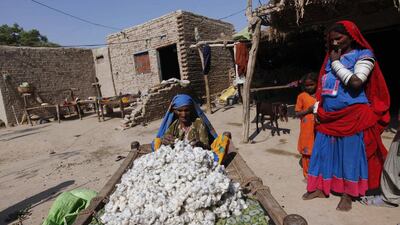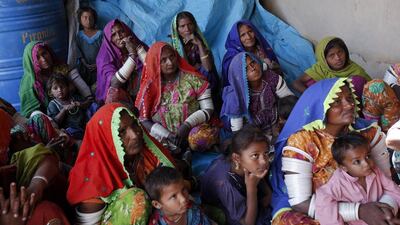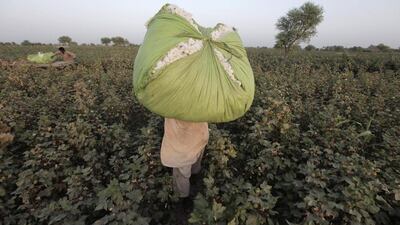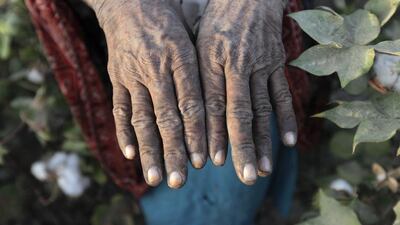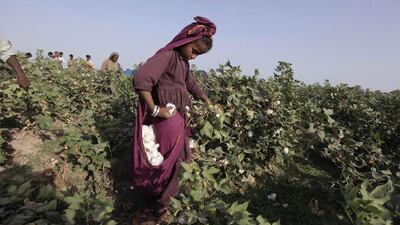Rural wages are rising across Asia but Pakistan remains one of the few exceptions. Power shortages plague the factories, agricultural productivity is stagnant and landlords are hugely powerful.
Last year, a group of about 40 women went on strike after struggling to feed and clothe their families on their meagre wages. It was an action almost unheard of for poor women working in the rural areas of the country, but their gamble paid off.
Azeema Khatoon, a mother of five, has spent most of her life labouring in Pakistan’s sun-baked cotton fields for less than US$2 (Dh7) a day. But the 35-year-old said she had nearly doubled her wage in the past year, and was now taking home $3.50 a day.
Her success is just one story cited by labour activists who are trying to encourage rural women to band together and form a united workforce.
“Before our collective bargaining we made no profit from our work,” said Ms Khatoon, picking rows of white cotton. “We all collectively decided to refuse to work for low wages,” she said proudly.
Illiterate women like Ms Khatoon make up the bulk of the estimated 500,000 cotton pickers in Pakistan – the world’s fourth-largest cotton producer after China, India and the United States. Their working conditions are often poor.
Pakistan is one of the few Asian countries where agricultural wages have gone down, not up, in the past 10 years, according to the Overseas Development Institute, Britain’s leading international development and humanitarian think tank.
Agricultural wages in the country have a massive impact on women, and in turn on their families. About 74 per cent of working women ages 15 and over are employed in agriculture, according to the International Labour Organisation.
Heatstroke, snake bites, exposure to pesticides, and cuts on their hands from handling the rough cotton bolls are other hazards of their daily toil.
Ms Khatoon and others have started bringing their school-age children to check the books, or to tie knots at the edges of their colourful saris to count how many days they have worked.
“Even though they can’t read the numbers or letters, they can say, ‘I have worked one day for each knot’,” said Javed Hussain, the head of the Sindh Community Foundation, which aims to improve the socioeconomic conditions of communities and which has trained 2,600 women in skills like bargaining and labour rights.
newsdesk@thenational.ae
